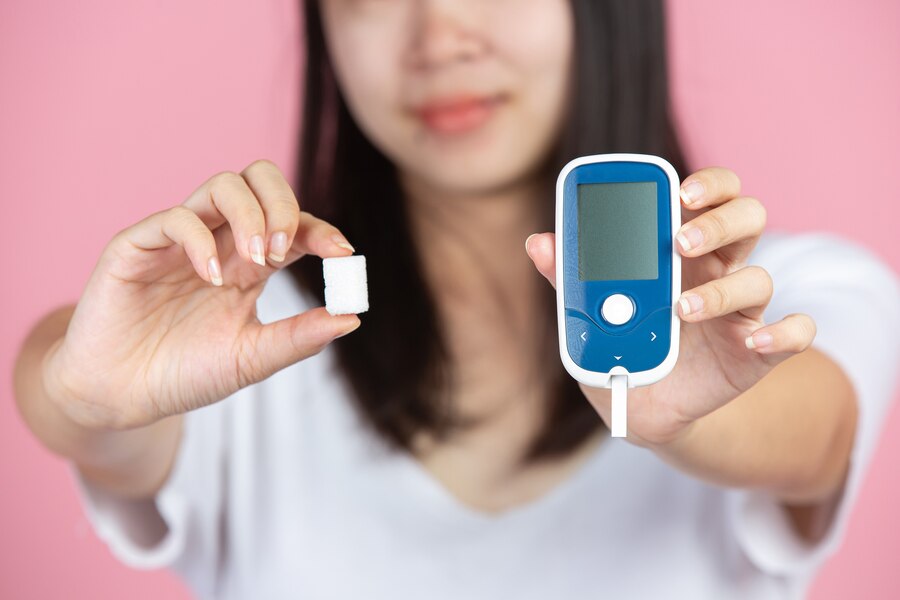Tips For Buying And Using Diabetes Supplies
Living with diabetes requires careful management and monitoring of blood sugar levels, and having the right diabetes supplies is crucial for effective self-care. From glucose monitors to insulin pumps, the array of diabetes supplies available can be overwhelming.
Making informed choices when buying and using these supplies is essential for maintaining a healthy and balanced life with diabetes. In this guide, we will explore some valuable tips to help individuals navigate the process of purchasing and utilizing diabetes supplies, empowering them to take control of their health and well-being.
Contents
1. Consult With Your Healthcare Team:

Initiating the process of obtaining diabetes supplies necessitates a preliminary consultation with your healthcare team. Your healthcare provider’s wealth of knowledge enables them to tailor advice based on your specific health requirements. They take into consideration the severity of your diabetes, your overall health status, and any coexisting medical conditions. This comprehensive evaluation allows your healthcare team to recommend supplies that align precisely with your treatment plan.
Moreover, their guidance extends beyond mere product suggestions; they provide insights into the proper usage of supplies and offer recommendations on the optimal frequency of testing. This personalized advice not only ensures that you acquire the right tools but also equips you with the knowledge to use them effectively in the nuanced landscape of diabetes management.
2. Understand Your Monitoring Needs:
Diabetes management pivots on the fundamental practice of monitoring blood sugar levels, a responsibility that varies among individuals based on their treatment plans. By understanding your unique monitoring needs, you gain the autonomy to make informed choices regarding the tools you employ.
Some may find a traditional glucose meter sufficient for their requirements, while others may benefit from the real-time data provided by continuous glucose monitoring (CGM) systems. This awareness empowers you to choose the most appropriate monitoring tools, ensuring that your method aligns seamlessly with your treatment plan. Such precision in monitoring contributes significantly to achieving better blood sugar management and overall diabetes care.
Read Also: Are Diabetes and Oral Health Related?
3. Compare Prices And Insurance Coverage:

The financial aspect of managing diabetes cannot be overlooked. To navigate this, it is crucial to compare prices from various suppliers, ensuring that you identify cost-effective options for your preferred supplies. Additionally, understanding your insurance coverage is paramount.
Many insurance plans in Canada and some other countries cover essential diabetes supplies, but the extent of coverage can differ. Familiarizing yourself with your insurance policy’s terms and actively seeking out cost-effective options significantly alleviates the financial burden associated with diabetes care. This proactive approach not only ensures you have the necessary supplies but also safeguards your financial well-being.
4. Consider Insulin Options And Storage:
For individuals using insulin, it’s crucial to explore different insulin options and understand their storage requirements. Some insulins are available in vials, while others come in pre-filled pens. Consult with your healthcare provider to determine the most suitable insulin for your needs. Additionally, be aware of the proper storage conditions for insulin to maintain its efficacy.
For those seeking convenient options, exploring platforms that allow individuals order Canadian insulin online can be a viable solution, providing accessibility and potential cost benefits. Insulin should be stored in the refrigerator according to manufacturer guidelines, and it’s essential to avoid exposure to extreme temperatures.
When purchasing insulin, check the expiration date, and be mindful of the storage guidelines to ensure the continued effectiveness of this vital diabetes medication.
5. Check Expiry Dates:
In the pursuit of effective diabetes management, vigilance during the purchasing process is paramount, particularly concerning the checking of expiry dates. Items such as test strips, insulin, and medications have finite shelf lives. The use of supplies beyond their expiration dates compromises their efficacy, leading to inaccurate readings and suboptimal diabetes management.
Regularly inspecting your supplies for expiry dates and promptly discarding any expired items becomes a crucial routine. This diligence ensures the reliability of your monitoring tools and medications, reinforcing the accuracy of your daily diabetes management.
6. Always Have A Backup Plan:

Recognizing the dynamic nature of diabetes management, it becomes paramount to have a well-conceived backup plan in place. Unforeseen situations can disrupt your routine, making it essential to keep spare insulin pens, additional test strips, or backup glucose meters readily available.
This proactive preparation for emergencies becomes a safety net, safeguarding your ability to manage your diabetes effectively, even in challenging circumstances where your primary supplies may be unavailable or compromised.
7. Stay Informed About Technological Advancements:
The landscape of diabetes care continually evolves with technological advancements, making it imperative to stay informed. Awareness of the latest developments ensures you can harness the benefits of innovative tools and methodologies. Whether it’s state-of-the-art monitoring devices or advancements in insulin delivery systems, embracing new technologies becomes a cornerstone of enhancing your overall diabetes care experience.
Remaining abreast of these innovations empowers you to make informed decisions about incorporating the latest advancements into your diabetes management plan, ultimately improving your ability to control and monitor blood sugar levels effectively. This commitment to staying informed becomes a proactive step towards optimizing your diabetes care journey.
Conclusion
Effectively managing diabetes requires a combination of lifestyle adjustments, regular monitoring, and the use of appropriate supplies. By consulting with your healthcare team, understanding your monitoring needs, comparing prices, establishing a storage routine, having a backup plan, and staying informed about technological advancements, you can navigate the world of diabetes supplies with confidence.
Remember, the right supplies and a proactive approach to your health are essential components of a successful diabetes management plan.
Read Also:



